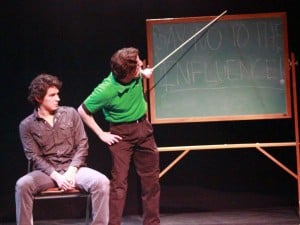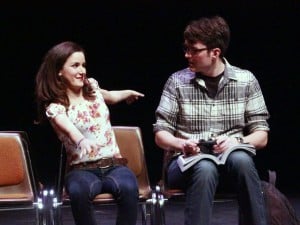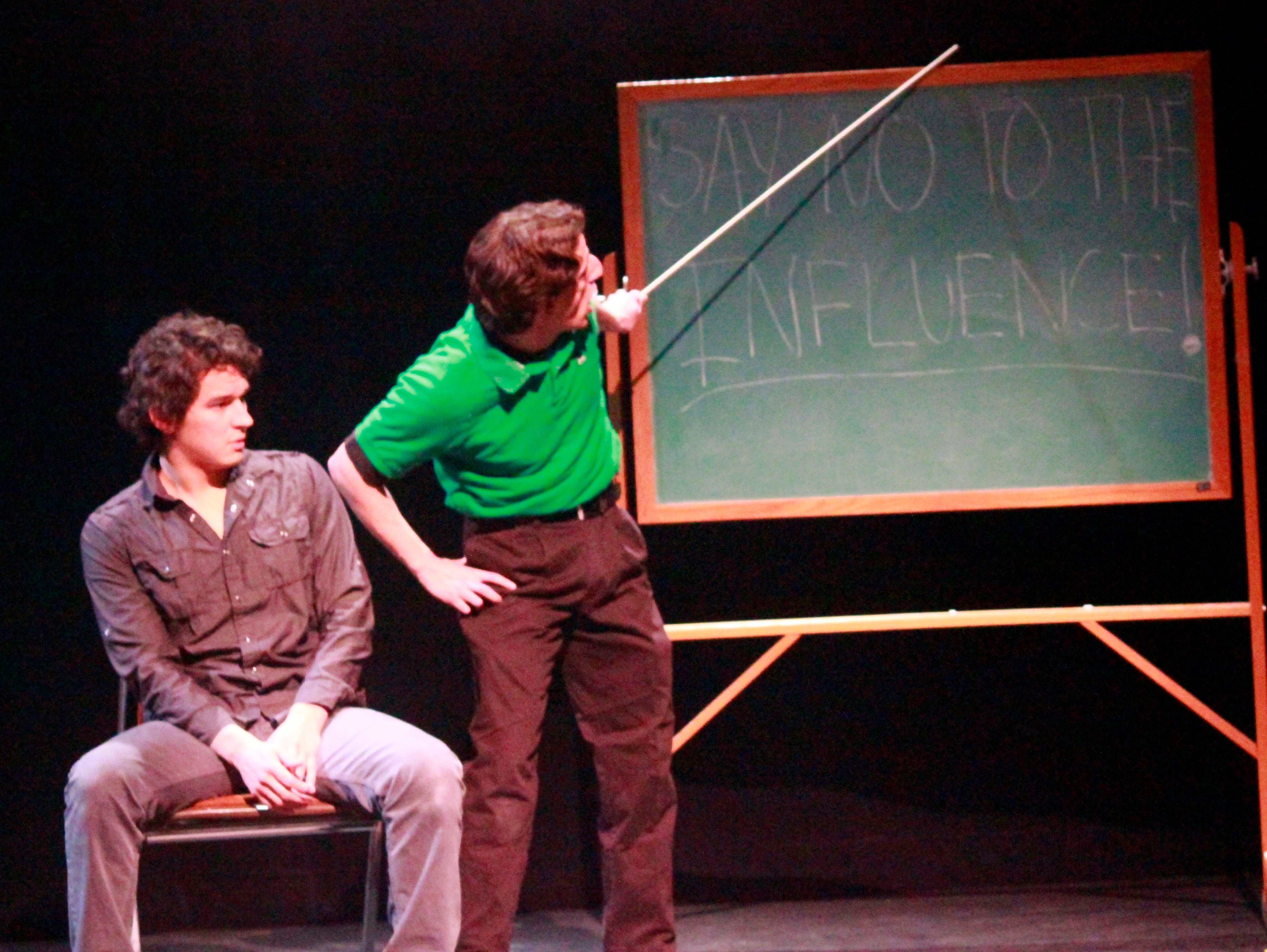In this year’s “The Original Winter One Acts,” “original” means mind games. The Ram’s Head Theatrical Society seasonal show, a collection of four student-written and student-directed one-act plays, is stimulating. From the staged conversations over coffee to surreal dream sequences, this Stanford tradition from the oldest theatrical company on campus serves up a jolt of a show; though it lasts only a little more than 60 minutes, it will leave you pondering its lessons for hours after.
“Henry Dances with The Man,” by Max Walker-Silverman ’15, appropriately opens the show. A mock sacrifice of his girlfriend to a dead rock n’ roll star hurls Henry (Bren Bovee ’15) into a bizarre world, where, hovering between reality and dreaming, he embarks on a literal search for love. Like reality, his journey becomes muddied with the often-frustrating distractions of everyday life, personified by Brandon Silberstein ’08 M.A. ’09, whose versatility helps him succeed in his role as “the man” who reappears like a bad dream. Packed with deep-seated cynicism about the gross — but real — contradictions of contemporary culture, from profiting pastors to womanizing lawyers, the play justifies Henry’s, and humanity’s, escapist impulses. Like many romances before, love, yet again, proves to be his only ticket out. That is, if he’s brave enough to face it.

Assuming that love is achievable, what kind of love we choose is the problem posed in the next play by Louis McWilliams ’16, “Sex on a Plane.” While two strangers wait to board at Gate 33, their relationship takes an unexpected, comical turn when the topic of sex casually comes up. The humor lies in the interplay between awkward Martin (Brady Richter ’15) and talkative Helen (Marly Carlisle ’17), who is especially unabashed about all things sexual. Though their conversation seems to defy all standards of public decency, the offhand manner with which Helen talks about sex makes it almost acceptable. In contrast, Martin, an overt master of euphemisms, shows how avoiding this mature subject is a reflection of our being constrained by our own underestimation and miscalculated fantasies.
For workaholic Anuj in Yash Saraf ’17’s “Toes,” another dialogue-driven act and the show’s third installment, fantasies are put in the back burner for the sake of professional success. However, when his office is intruded by the free-spirited Sasha from the third floor, Anuj finds himself succumbing to his childhood fantasies that stealthily sneak their way back to the here and now. Together, Nishant Karandikar ’16 and Malaika Murphy-Sierra ’17 give honest performances that strike a familiar chord with young high-achieving go-getters. “Toes” is especially poignant during the scenes of childhood recollection, evoking nostalgia for our own artless past. In these moments, the present grows heavy with the decision to allow undying dreams to provide the impetus for the future, even if doing so is unorthodox.

Finally, the ultimate mind game. The work of Dana Edwards ’14 and Annalise Lockhart ’14, “There is a Cool Grass Shaking Your Thought,” is arguably the most original act of the night. Composed entirely of randomly generated sentences, the stringy dialogue sounds more like a secret code language. And, yet, it all makes sense: A couple reunites, and there’s a flare-up and a make-up. Nicole Bennett-Fite ’16 and Matt Jeakle ’17 diminish any ambiguity through their nuanced use of vocal inflections, facial expressions and gestures. The words don’t even matter; eventually, the audience finds itself mentally filling in sensible dialogue, as if the actors are mere stand-ins for real human interaction. But if it’s so easy to see ourselves in the same banal squabble, does that make our own experiences as arbitrary as the play’s dialogue? Are we mere actors on a world stage? Shakespeare might have something to say.
“The Original Winter One Acts” opens its doors tomorrow, Jan. 16, 2014, and will continue every night until Saturday, Jan. 18. The show starts at 8 p.m. in Pigott Theatre, located on the side of Memorial Auditorium. Ticket will be sold on show days from 11 a.m. to 1 p.m. at White Plaza and are available online: $5 for Stanford students and $10 general admission. For more information visit owoa.stanford.edu.
